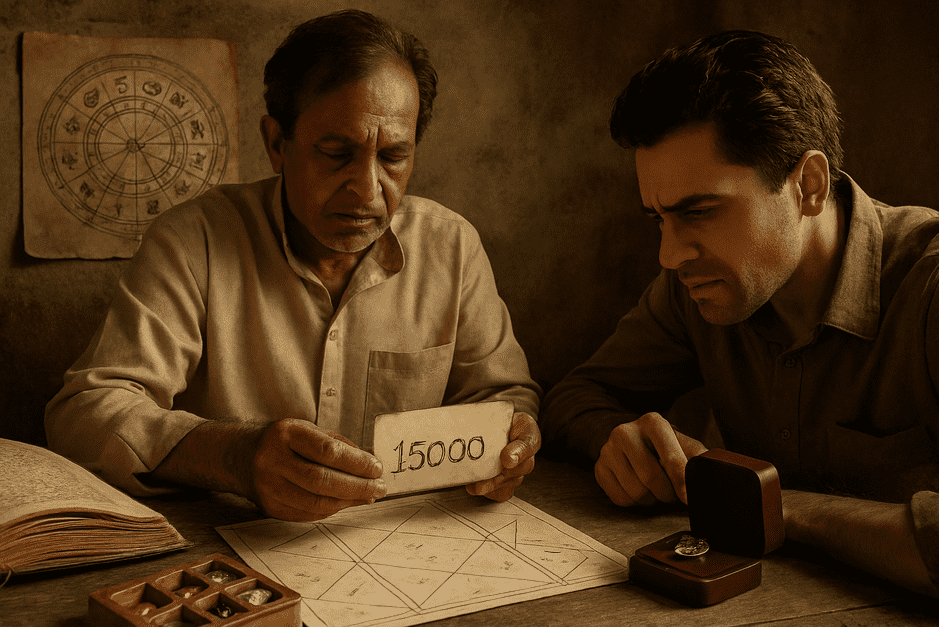Gemology Notebook Practice: Document Everything
Gemology notebook practice is the simplest way to grow your expertise.
Instead of relying on memory, write down every detail of the stones you examine—color, clarity, cut, luster, inclusions, and weight.
This habit builds a personal knowledge base that no textbook can replace.
Over time, your notebook becomes your most powerful tool.
“The key is consistency. A single page a day compounds into decades of gem knowledge.”
Why Gemology Notebook Practice Works
- Accuracy: Recording clarity, luster, and color reduces costly mistakes.
- Memory retention: Research shows people remember 70% more when they write notes.
- Pattern spotting: Notes help reveal trends across treatments and origins.
- Confidence: Written records provide evidence in buying and selling decisions.
See GIA’s gemstone education resources for further clarity on grading details.
Case Study
In 2023, a survey of Bangkok gem traders found that 64% credited gemology notebook practice with their ability to detect treated sapphires faster than peers who only relied on training.
Q&A: Building the Habit
Q: What details should go into my notebook?
A: Record stone type, weight, dimensions, color observations, clarity notes, inclusions, luster, and any known origin.
Q: Can digital tools replace handwritten notes?
A: Apps are useful, but handwritten notes sharpen your eye and memory more effectively.
Q: How often should I update my notebook?
A: Every time you handle a new stone. Even short notes and sketches add up.
What 40+ Years of Gemology Notebook Practice Taught Me
I’ve practiced gemology notebook habits for over 40 years. From Bombay and Jaipur in the 1980s to Cochin in Kerala today, my earliest notebooks still guide valuations and trade decisions.
Read the GIA article on Gemstone Color and Value to understand why consistent notetaking is critical.
Gemology notebook practice helps you record every stone’s details—color, clarity, luster, and weight. This builds a reliable knowledge base, sharpens memory, and reduces costly mistakes. Experts worldwide confirm this habit is the foundation of long-term success in gemology.
Small Luxury Hotels FAQ
Introduction
This small luxury hotels FAQ answers common questions about boutique stays. It explains definitions, differences with large chains, and which services to expect. In addition, it covers family options, sustainability, and tips on finding the right property.
What defines a small luxury hotel?
- Fewer than 100 rooms.
- Personalized attention and privacy.
- Strong links to local design.
- Locations in unique urban or rural areas.
As a result, travelers often choose them for a more intimate experience. Moreover, their distinctive style sets them apart from standardized hotels.
Why choose a small luxury hotel?
Personal service
Staff remember guest details, therefore creating a sense of familiarity.
Calm spaces
Unlike large hotels, these properties feel quieter, so you can relax more easily.
Local culture
For example, menus highlight regional produce, and interiors reflect local crafts.
In addition, many guests return because the experience feels authentic.
How do small luxury hotels differ from large chains?
Guest experience
Small hotels provide tailored attention, while chains rely on uniform systems.
Property identity
Each boutique hotel has its own theme. On the other hand, large chains repeat formats worldwide.
Dining approach
Menus change seasonally and locally. Therefore, guests enjoy fresh variety instead of standard global menus.
Are small luxury hotels only for leisure stays?
Business features
- Lounges double as meeting rooms.
- Private dining options support work dinners.
Digital needs
- Fast Wi-Fi supports remote work.
- Quiet spaces help concentration.
Because of these advantages, small luxury hotels appeal to both business and leisure travelers.
What services can you expect?
- Concierge services for tours and dining.
- Fine dining menus with seasonal ingredients.
- Spa and wellness treatments.
- Added extras like minibars and welcome gifts.
Moreover, services shift depending on location. For example, a city hotel might offer cultural tours, while a rural retreat offers farm experiences.
Are small luxury hotels family-friendly?
Options for families
- Connecting rooms for parents and children.
- Child-friendly amenities such as menus or games.
Adults-only stays
- Some properties focus on privacy.
- Guests find peaceful, child-free environments.
Therefore, always check booking policies, because each hotel sets its own approach.
Do these hotels support sustainability?
Sourcing and dining
Farm-to-table meals reduce transport impact. In addition, guests enjoy fresher produce.
Environmental focus
Plastic use is restricted, while refillable bottles are encouraged. Smart energy systems reduce wastage.
Local involvement
Hotels support the community by hiring regionally. As a result, growth extends beyond the property.
How do you find the right small luxury hotel?
Define needs
Decide if food, spa, culture, or privacy is your top priority.
Check guest feedback
For example, repeat reviews about service often signal consistency.
Compare value
Packages may include meals, transfers, or early check-in. Therefore, higher prices can still deliver stronger value.
Are small luxury hotels worth the price?
Value of service
Guests pay for attention, comfort, and privacy. Moreover, experiences feel tailored and unique.
Extras add value
Some hotels include exclusive experiences or benefits. Finally, weigh these extras against nightly rates.
As a result, many travelers feel these hotels justify their price when quality matters most.



